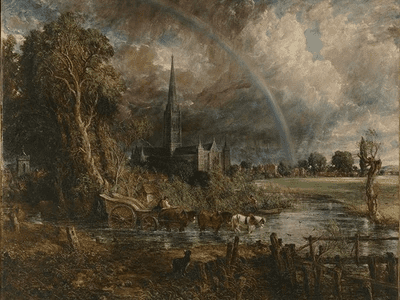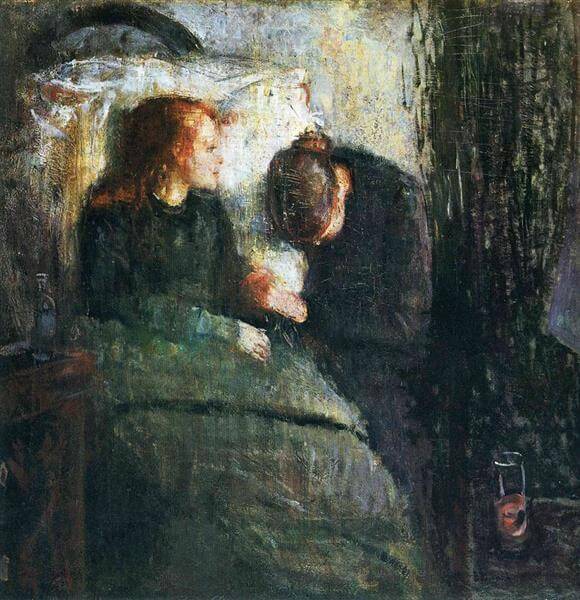Title of Artwork: “Salisbury Cathedral from the Meadows”

Artwork by John Constable
Year Created 1831
Summary of Salisbury Cathedral from the Meadows
John Constable painted Salisbury Cathedral from the Meadows in 1831, one year after the death of his wife, Maria. Right now, you may see it at the Scottish National Gallery in Edinburgh.
When Amelia dies in the arms of Celadon, her lover, in a storm, the rainbow is a symbol of optimism after a storm.
He later added nine lines from The Seasons by James Thomson, an eighteenth-century poet. Constable first displayed this painting at the Royal Academy in 1831, but he continued to work on it in 1833 and 1834 before completing it.
All About Salisbury Cathedral from the Meadows
It was an expression of his erratic emotions and shifting mental states that he captured in this artwork. The turbulence in the sky mirrors his emotional state of mind and is mirrored by the sky.
It has been interpreted in a variety of ways, including as a symbol of the conflict between industrialization and nature.
Tate bought the picture for $23.1 million in May of 2013.
To make this purchase, Tate collaborated with Amgueddfa Cymru – National Museum Wales, National Galleries of Scotland, the Colchester and Ipswich Museums Service, and the Salisbury and South Wiltshire Museum, as part of the Aspire cooperation initiative.
Work acquired with large funds from the Heritage Lottery Fund, the Art Fund (including a Wolfson Foundation contribution), The Manton Foundation, and Tate Members will be on display “nearly constantly” as a result of this new cooperation, ensuring that it will remain in the United Kingdom.
Educators will be on hand to answer questions about the painting and John Constable’s work in conjunction with each display.
Information Citations
En.wikipedia.org, https://en.wikipedia.org/.
Recommend0 recommendationsPublished in Artworks






Responses